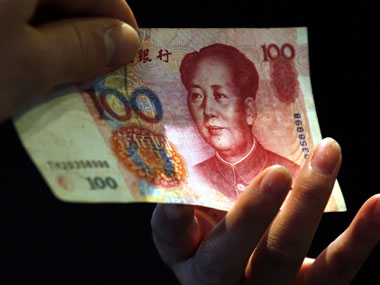Washington: The US Treasury said that China’s yuan is still significantly undervalued, but it refrained from saying Beijing manipulates the currency, which could lead to retaliatory action by the Congress.
“The real exchange rate of the renminbi (RMB) is persistently misaligned and remains substantially undervalued, though the degree of this undervaluation appears to have declined significantly,” the Treasury said in a semi-annual report to Congress on Tuesday.
The Treasury said the yuan had risen 7.5 percent against the dollar in the 18 months since Beijing began allowing a managed appreciation, and by 12 percent if China’s high inflation rate is figured in.
[caption id=“attachment_167186” align=“alignleft” width=“380” caption=“Many lawmakers have accused Beijing of currency manipulation so that it can maintain its huge trade surplus.”]  [/caption]
Based on that, on China’s shrinking current account surplus and on Beijing’s commitment to make the yuan more flexible, the Treasury said it could not conclude that the currency was being manipulated to boost its exports to the United States.
Nevertheless, it said, “Treasury assesses that movement of the RMB to date is insufficient and more progress is needed.”
The Treasury’s report is required by the Omnibus Trade and Competitiveness Act of 1988, which calls for the department to determine whether any of the country’s major trading partners manipulates its currency for unfair trade gains.
Many lawmakers have accused Beijing of doing just that to maintain its huge trade surplus with the United States, and have called for retaliation.
But the Treasury has maintained consistently since 2010 that China has become more flexible and that Beijing recognizes the need to let the yuan rise to push much-needed adjustments to its economy, the world’s second largest.
“The Chinese leadership has identified shifting away from growth driven by exports toward a greater reliance on domestic consumption as a critical goal for sustaining growth in the medium term,” the Treasury report said.
It noted as well that at the G20 summit in Cannes in November, China pledged to move more quickly to market-based exchange rates and to allow the yuan to better reflect the strength of its economy.
The Alliance for American Manufacturing, linked to the US steel industry, condemned the Treasury conclusions and called for Congress to retaliate anyway.
AFP


)
)
)
)
)
)
)
)
)



